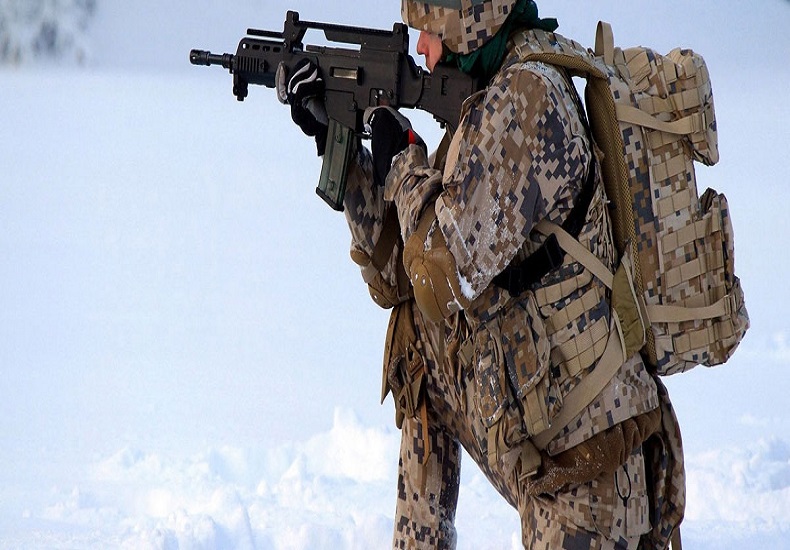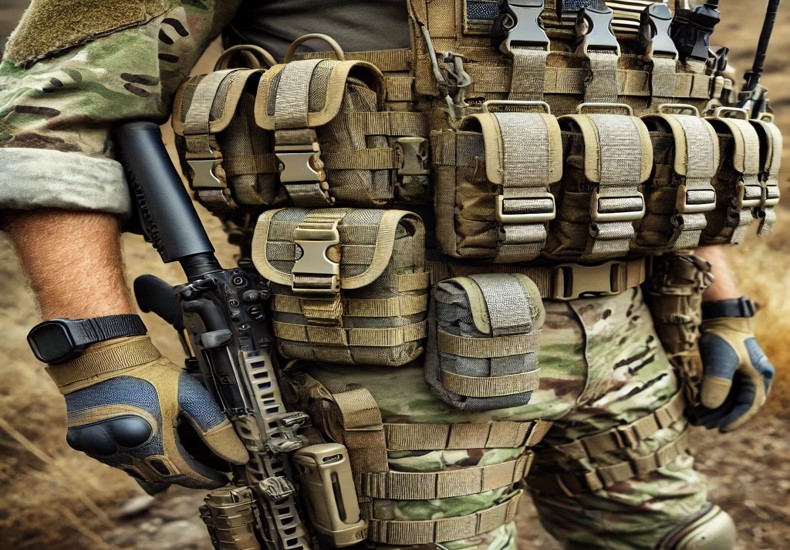
When producing military-grade equipment, aerospace components, or rugged outdoor products, every material used is critical. One often overlooked, yet critical part of the product is mil-spec webbing. Choosing the right mil-spec webbing manufacturer will impact the performance, safety, and durability of your final product. Here’s how to make the right decision.
Military webbing, short for “mil-spec webbing,” refers to strips of woven fabric that meet the stringent quality requirements of the U.S. Department of Defense. These requirements ensure that the webbing can withstand extreme weather conditions, heavy loads, and frequent use without failure. Military webbing is typically made from nylon or polyester and is used for parachute straps, military/first responder gear, backpack straps, or anything else that requires high quality and repeatable use.
Commonly used materials include nylon, polyester, and Kevlar, depending on the performance characteristics required. Mil-spec webbing needs to perform under extreme conditions, including UV exposure, moisture, chemical exposure and heavy load stress, so consistent quality is critical.
Not all manufacturers are created equal. When evaluating a mil-spec webbing manufacturer, keep these key criteria in mind:
An established manufacturer will strictly monitor all Mil-Spec standards and be able to provide a test certification or technical definition certificate.
The strength, abrasion resistance, and UV stability of the material are non-negotiable. A reliable manufacturer sources high-grade yarns and controls the weaving process to ensure consistency.
Whether you need specific widths, colors (including Near Infrared Compliant options), or treated finishes (e.g., flame resistance), the manufacturer should offer tailored solutions.
A good manufacturer can handle both small prototype runs and large-scale orders without compromising delivery schedules.
Seek out testimonials, case studies, or referrals. Companies that have established long-term partnerships with defense contractors or outdoor brands are often a safe bet.

A manufacturer with an established record of serving military contractors or government agencies is typically a safer bet; request references or publicly available contracts that they have completed. Satisfied customers and years of experience can be great indicators of company reliability.
Also, see if they are active in their industry through trade shows or other forums; this will show if they are able or willing to remain current with industry trends and regulations for military and tactical products.
The right partner provides more than just raw materials. A reputable manufacturer ensures:
Their webbing will perform under pressure, meeting mission-critical requirements.
High-quality webbing reduces failures, warranty claims, and replacements.
From product development to final assembly, experienced manufacturers can advise on the best materials and designs to meet your goals.
Mil-Spec webbing may seem insignificant, but it has a significant impact on the overall performance and safety of the final product. By thoroughly reviewing the manufacturer’s compliance, quality, and reputation, your project can be completed successfully. We are a trusted Mil-Spec webbing manufacturer, and if you are hesitant about choosing a partner, we will be your best choice